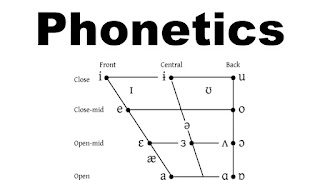Description
of speech sound
Diphthong
A
diphthong is a vowel sound in which the tongue moves from one position to
another during pronunciation, so that the vowel sounds like a combination of
two other vowels. The word "diphthong" comes from the Greek words
"diphthongos," meaning "two sounds."
A
diphthong is produced by the tongue moving from one position to another during
pronunciation. This movement of the tongue creates a gliding or sliding effect,
which is why diphthongs are sometimes called "gliding vowels."
In
English, there are eight major diphthongs:
/aɪ/ as
in "light"
/eɪ/ as
in "play"
/ɔɪ/ as
in "coin"
/aʊ/ as
in "out"
/eə/
as in "pair"
/ɪə/ as in "dear"
/oʊ/ as
in "slow"
/ʊə/ as in "sure"
These
diphthongs can be divided into two categories: rising diphthongs and falling
diphthongs.
Rising
diphthongs start with a low vowel sound and end with a higher vowel
sound. The tongue starts in a low position and then moves up towards the roof
of the mouth. The following are the four rising diphthongs in English:
/aɪ/ as
in "light"
/eɪ/ as
in "play"
/ɔɪ/ as
in "coin"
/ɪə/ as in "dear"
Falling
diphthongs start with a high vowel sound and end with a lower vowel
sound. The tongue starts in a high position and then moves down towards the
bottom of the mouth. The following are the four falling diphthongs in English:
/aʊ/ as
in "out"
/eə/
as in "pair"
/ʊə/ as in "sure"
/oʊ/ as
in "slow"
Diphthongs
are often found in stressed syllables, but they can also occur in unstressed
syllables. For example, the word "about" has a falling diphthong in
the unstressed first syllable.
Diphthongs
are an important part of English pronunciation. They can help to distinguish
between words that sound similar, such as "light" and
"like". They can also add variety and expressiveness to speech.
Diphthongs
are not always represented by two distinct vowel letters in the written
language. For example, the diphthong /aɪ/ is
often represented by the single vowel letter "i" in words like
"light" and "night."
The
pronunciation of diphthongs can vary depending on the dialect of English. For
example, in some dialects, the diphthong /aʊ/ is
pronounced with a more rounded vowel sound, as in the word "out."
Diphthongs
can be combined with other sounds to create more complex vowel sounds. For
example, the diphthong /aɪ/ can be combined with a
glottal stop to create the sound of the word "high."
Diphthongs
are an important part of English pronunciation. They can help to distinguish
between words that sound similar, such as "light" and
"like". They can also add variety and expressiveness to speech.
Diphthongs
are not always represented by two distinct vowel letters in the written
language. For example, the diphthong /aɪ/ is
often represented by the single vowel letter "i" in words like
"light" and "night."
The
pronunciation of diphthongs can change depending on the stress pattern of the
word. For example, the diphthong /aɪ/ is
pronounced with a different vowel quality in the stressed syllable of the word
"light" than it is in the unstressed syllable of the word
"night."










0 Comments